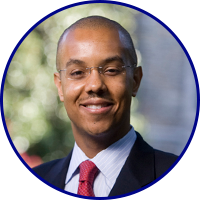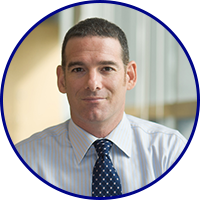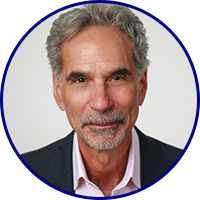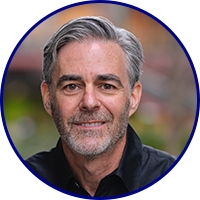WW's scientific advisory board


WeightWatchers is a science-based behaviour change company. To ensure our program is up-to-date based on the latest clinical evidence, we enlist highly-regarded experts to inform and advise our brand innovations. Here's a peek at the advisory board members' qualifications and accomplishments:
The WW scientific advisory board

Cheryl A.M. Anderson, Ph.D., MPH, MS
Professor and Interim Chair of the Department of Family Medicine and Public Health at the University of California San Diego School of Medicine, with a primary appointment in the Division of Preventive Medicine and a joint appointment in the Department of Medicine Division of Nephrology and Hypertension
Dr. Anderson serves as Director of UC San Diego Center of Excellence in Health Behavior Change and Equity. She received her MPH in health behaviour and health education from the University of North Carolina at Chapel Hill School of Public Health, and MS in epidemiology and Ph.D. in nutrition science from the University of Washington at Seattle School of Public Health and Community Medicine. Her research is focused on the role of nutrition in chronic disease prevention. Dr. Anderson has served on the Pan American Health Organization’s Technical Advisory Group on Cardiovascular Disease Prevention through Dietary Salt Reduction, the National Academies of Medicine’s Food and Nutrition Board, and the 2015 US Dietary Guidelines Advisory Committee. She currently serves on the editorial board of Circulation. Dr. Anderson was elected to the U.S. National Academy of Medicine in 2016.

Professor, Head of the Department of Nutrition, Exercise and Sports at the University of Copenhagen, Denmark, and senior consultant at ClinHerlev-Gentofte University Hospital
Professor Astrup's principal research is on the physiology and pathophysiology of energy and substrate metabolism and appetite regulation. His research has a special emphasis on the etiology and treatment of obesity by methods that include the role of diet composition and of specific nutrients, lifestyle modification, very-low-calorie diets, exercise, and medication. He led research that showed that GLP-1 is a satiety hormone in humans, and was instrumental in Denmark becoming the first country to ban industrial trans fat in 2014.

Bishop-MacDermott Family Professor of Psychology Neuroscience, Global Health and Medicine at Duke University
Dr. Bennett directs the Duke Global Digital Health Science Center. Dr. Bennett is also President of the Society of Behavioral Medicine. His research program designs, tests, and disseminates digital obesity treatments, including the interactive obesity treatment approach (iOTA). His recent work demonstrates the effectiveness of coach-led, digital obesity treatments. He has authored more than 125 scientific papers and his research program has been continuously supported by the National Institutes of Health. Prior to joining Duke in 2009, Dr. Bennett served on the faculties of the Harvard School of Public Health and the Dana-Farber Cancer Institute. At Duke, Dr. Bennett is a member of Duke's Bass Society of Fellows, is the founding director of Duke's undergraduate major in global health, and has been repeatedly recognized as in the top 5 percent of Duke's undergraduate instructors. He also co-founded two digital health startups: Crimson Health Solutions (acquired by Health Dialog in 2007) and Scale Down (acquired by Anthem in 2017).

Eric Finkelstein Ph.D., M.H.A.
Professor of Health Services and Systems Research at the Duke-NUS Graduate Medical School, Singapore, and the Executive Center Director of the Lien Centre for Palliative Care
Professor Finkelstein also holds appointments at NUS School of Public Health and Duke University Global Health Institute. His research focuses on the economic causes and consequences of health behaviours, with a primary emphasis on the use of traditional and behavioural economic incentives to influence those behaviours in ways to improve the public’s health. His recent research studies the complicated decisions that revolve around end-of-life care.

Professor and Chair in the Department of Health and Physical Activity at the University of Pittsburgh, and Director of the Physical Activity and Weight Management Research Center
Dr. Jakicic’s principal research is on the prevention and treatment of obesity using lifestyle modification, with a primary focus on physical activity. He also has applied this expertise to examine the effects of physical activity and weight loss on health outcomes, including cardiovascular disease, diabetes, cancer, and factors related to ageing, including both cognitive and physical function.

Professor of Medicine at Northwestern University Feinberg School of Medicine, Clinical Director of the Northwestern Comprehensive Center on Obesity, and Director for the Center for Lifestyle Medicine in Chicago
Dr. Kushner’s principal research is in patient-health provider communication and lifestyle treatment of obesity. He has also investigated pharmacological and surgical interventions for obesity.

Professor of Psychiatry and Psychology at the University of Pittsburgh School of Medicine, and former Chief of the Eating Disorders Program at Western Psychiatric Institute and Clinic, University of Pittsburgh Medical Center
Dr. Marcus’ research has focused on the characterization and treatment of disordered eating and the behavioural management of adult and pediatric obesity.

Irving Schulman, MD Endowed Professor in Child Health, Professor of Pediatrics and of Medicine, in the Division of General Pediatrics and the Stanford Prevention Research Center at Stanford University School of Medicine, and Director of the Center for Healthy Weight at Stanford University and Lucile Packard Children's Hospital at Stanford
Dr. Robinson directs the Stanford Solutions Science Lab. He studies obesity and disordered eating, nutrition, physical activity/inactivity, and more. Published widely in scientific literature, Dr. Robinson also teaches undergraduate and graduate students at Stanford, and practices Pediatrics at Lucile Packard Children's Hospital. He received his B.S. and M.D. from Stanford University and his M.P.H. from the University of California, Berkeley. He trained in Pediatrics at Children's Hospital, Boston and Harvard Medical School.

President of SR Strategy, which addresses the science to communications to policy continuum on a broad range of global health, nutrition, food safety, and risk issues; Adjunct Professor at the University of Massachusetts Amherst and Tufts Friedman School of Nutrition Science and Policy
Previously, Rowe served as a president and chief executive officer of the International Food Information Council (IFIC) and IFIC Foundation, in Washington, DC. During her 11-year tenure, IFIC established itself as a leader in consumer research and consumer-based communications in nutrition, food safety, and health.

Professor of Health Behavior and Nutrition at the University of North Carolina at Chapel Hill in the Gillings School of Global Public Health, Director of the Communication for Health Applications and Interventions Core in the Nutrition Obesity Research Center and the Lineberger Comprehensive Cancer Center
Dr. Tate's research focuses on prevention and treatment of obesity and includes innovative approaches involving health communication, technology, and digital media.
The Albert J. Stunkard Professor of Psychology in Psychiatry at the Perelman School of Medicine at the University of Pennsylvania, and the Director of the Center for Weight and Eating Disorders
Dr. Wadden's principal research is on the treatment of obesity by methods that have included lifestyle modification, very-low-calorie diets, exercise, medication, and surgery. He has also investigated the metabolic and psychosocial consequences of obesity and weight loss.
